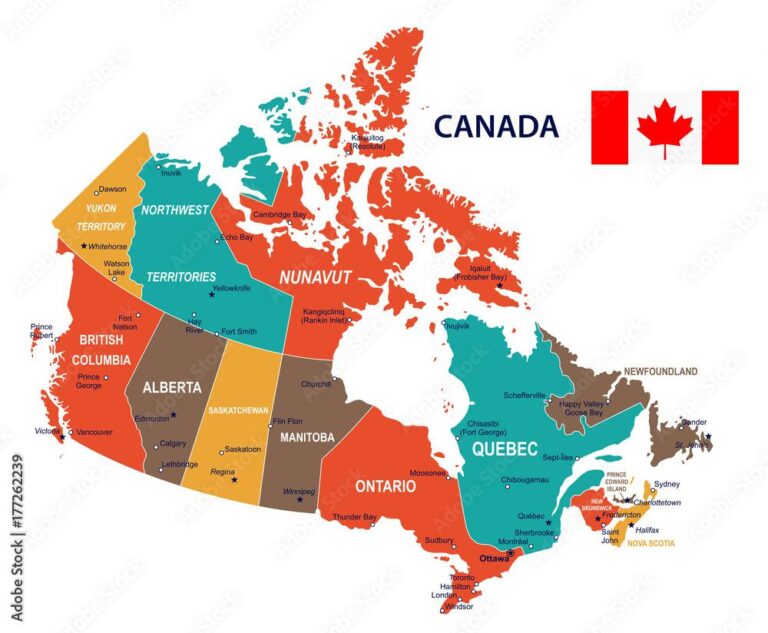In a significant diplomatic shift, Canada, the United Kingdom, and Australia have all officially recognized the Palestinian state, marking a notable rebuke to Israel amid the ongoing Gaza conflict. This coordinated move reflects growing international concern over the humanitarian crisis and escalating violence in the region, signaling a departure from previous foreign policy stances and adding new momentum to the long-standing Israeli-Palestinian dispute. The decisions come as the world watches closely, highlighting the complex geopolitical dynamics shaping the evolving situation in the Middle East.
Canada UK and Australia Recognize Palestinian State in Historic Shift
In a groundbreaking diplomatic move, Canada, the United Kingdom, and Australia have officially recognized the State of Palestine, signaling a significant shift in international relations amid escalating tensions in the Middle East. This unprecedented stance comes as a direct criticism of Israel’s recent military actions in Gaza, highlighting a growing chorus of global disapproval over the ongoing conflict. The decision marks a pivotal moment, as these traditionally Western-aligned nations recalibrate their foreign policies to address the humanitarian crisis and push for renewed peace efforts.
The recognition has sparked vigorous debate across political and social spheres, underlining key points such as:
- Formal diplomatic acknowledgment of Palestinian sovereignty.
- Calls for an immediate ceasefire and renewed peace talks.
- Potential realignment of alliances in international forums such as the UN.
| Country | Date of Recognition | Official Statement Highlight |
|---|---|---|
| Canada | April 2024 | “A step toward justice and peace in the region.” |
| United Kingdom | April 2024 | “Acknowledging Palestinian rights to foster diplomatic dialogue.” |
| Australia | April 2024 | “A call for ending hostilities and supporting statehood.” |
Diplomatic Repercussions Signal Growing International Condemnation of Israel’s Gaza Offensive
The recent recognition of Palestine as a state by Canada, the United Kingdom, and Australia marks a significant shift in Western foreign policy dynamics, highlighting growing frustration over Israel’s ongoing military actions in Gaza. This collective diplomatic gesture, unprecedented in scope among traditionally allied nations, is viewed as a direct rebuke to Israel’s offensive, signaling increased international consensus against the escalation of violence in the region. Analysts suggest that this move could pressure Israel to reconsider its strategy amidst mounting global scrutiny and potential shifts in geopolitical alliances.
Key implications of this shift include:
- Heightened diplomatic isolation for Israel in Western political circles
- Strengthening of Palestinian political legitimacy on the global stage
- Potential reevaluation of foreign aid and military support packages
- Encouragement for other nations to follow suit in diplomatic recognition
| Country | Date of Recognition | Official Statement Tone |
|---|---|---|
| Canada | April 15, 2024 | Firm condemnation of violence, call for peace talks |
| United Kingdom | April 14, 2024 | Support for a two-state solution, human rights emphasis |
| Australia | April 16, 2024 | Condemned attacks, advocated for international mediation |
Strategic Recommendations for Middle East Policymakers Amid Escalating Regional Tensions
Amid rising diplomatic friction in the Middle East following Western recognition of a Palestinian state, regional policymakers are urged to adopt calibrated strategies focused on de-escalation and dialogue facilitation. Constructive engagement with both Israeli and Palestinian leadership is essential to prevent further deterioration of security and humanitarian conditions. Strengthening back-channel communications and leveraging multilateral platforms such as the Arab League and the Gulf Cooperation Council can provide necessary frameworks for sustained diplomatic efforts while minimizing proxy conflicts that exacerbate regional instability.
To navigate the complex geopolitical landscape, Middle Eastern governments should prioritize:
- Enhanced intelligence sharing to monitor cross-border threats and preempt acts of violence.
- Economic collaboration initiatives designed to mitigate fallout from escalating tensions and encourage interdependence.
- Support for humanitarian corridors to alleviate civilian suffering amidst ongoing conflicts.
- Promotion of inclusive political dialogues that consider diverse societal voices and reduce polarization.
| Policy Area | Recommended Action | Expected Outcome |
|---|---|---|
| Security Cooperation | Joint task forces with regional partners | Improved threat detection and deterrence |
| Economic Development | Regional trade agreements | Stabilized economies reducing conflict drivers |
| Humanitarian Aid | Establish corridors for civilian assistance | Lowered civilian casualties and displacement |
| Diplomatic Engagement | Facilitate multi-party dialogues | Long-term conflict resolution prospects |
In Summary
As Canada, the UK, and Australia join a growing list of countries formally recognizing the Palestinian state, their move signals a marked shift in diplomatic stances amid heightened tensions surrounding the Gaza conflict. This collective rebuke to Israel underscores the deepening international concern over the humanitarian crisis and the urgent calls for renewed efforts toward a lasting peace. The evolving geopolitical landscape suggests that the ramifications of this recognition will continue to influence Middle East diplomacy in the months ahead.




